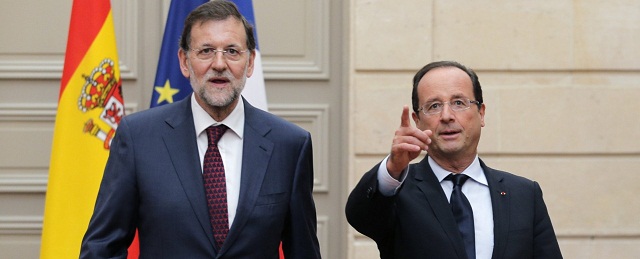Warnings about France are increasingly frequent these days. Should we worry about the second largest economy of the eurozone?
Yes, there is no doubt about this. France has been during the last two years struggling to keep itself apart from the periphery while not quite holding its chair in the core of the eurozone. It is true that the French financial industry and large companies have had a sound performance in the worst moments of the crisis and its economy has fought back, but it couldn’t set itself apart. The signs of economic weakness that we see in France are similar to those in Spain or Italy, while Germany is more consistent. France’s economic system will not fall into bankruptcy, but the French model cannot be considered as a superpower any more. It doesn’t belong to the same league as Germany and the UK.
But the EU budget has again bet on austerity only to solve the current crisis. Is it a mistake?
It isn’t the right thing to do, either. Unfortunately, the European budget is not as transparent and it should be, so we know little about the real spending plans in detail. The problem is not the size of the budget but how it is allocated, and in that sense national interests and party politics still have a bigger role than they deserve.
Spain’s rescue is much less talked about than last year, though.
I beg to differ. Everything that has happened during the last months indicates that Spain is now in a better position to negotiate a bailout: it has already placed part of its financing needs on the markets, demand for bonds has been good, and the overall situation is more comfortable. But the threat that the country suffers a further downgrade by the ratings agencies is very much a certainty this year. I wish I were wrong, but the three fist months of 2013 look like the ideal moment to ask for a rescue.
Even so, Morgan Stanley analysts said in a recent report that Spain was on its way to become the next Germany.
Morgan Stanley also said favoured its recommendation of investing in Spain last year. I think we need to put these statements within context. It is true that the reforms that have been introduced has made of Spain a country reliant on exports, which certainly mirrors Germany, but we aren’t yet there. The Spanish economy grows thanks to its exports, but generates jobs thanks to its tourism industry. We still need to modernise our industry.
And then, Silvio Berlusconi makes a comeback into Italy’s politics scenario…
Oh, well, Italy is in a very critical moment, it’s difficult to describe it in words. It appears quite impossible that Berlusconi wins the elections, but he could be an important destabilising factor. There are two main options for Italy in the near future: in the best case, Italy could just tumble a bit and end up asking for a rescue itself; but in the worst case, there could be a direct conflict with Germany, and taking in account that Germany will hold elections in September, Angela Merkel could play the tougher-than-tough card, which would mean less flexibility for the European Central Bank and more austerity.
What did you make of the ECB governor’s appearance in the Spanish Parliament this week?
Not much. He didn’t surprise and the markets will take no notice. Draghi’s discourse was one of support to the government’s reform agenda. There will be so domestic controversy over his comments on unemployment, and for the outside there were some opinions about the price of the euro, but his speech seemed to have no clear objective.







Be the first to comment on "“France shows same weakness signs as peripheral economies”"